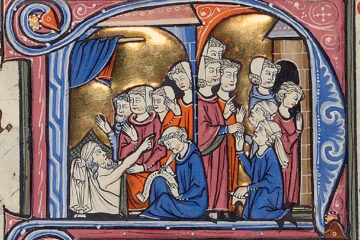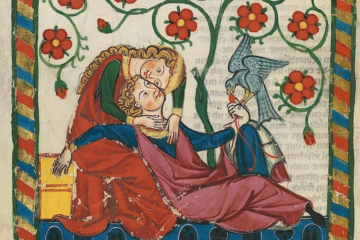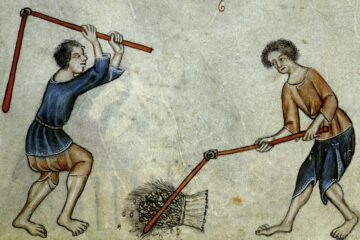Short excerpts from the folk tale of Lord Hans, known to the people as “The Prince.”
A long time ago, in an ancient Empire, there lived a Good Duke. His name was Wilhelm Winter. Many of his time called him “good”, but even more called him “great.” Kings would name their sons after him and his house would go on to thrive for years.
Before the Great Duke died, he had four children. Two of them were sons. Prince Hermann and Prince Hans. Prince Hermann was a true warrior. He had bested a Paladin by the age of 12 and he had once picked up an entire horse to win the hand of his wife, a beautiful princess from Chatersberg. He was loved by all, women desired him, while men idolized him. His father gave him lessons on how to rule, while his mother tended to his wounds. Prince Hans was a shy boy, with his head in books and often found pondering in the garden. The Great Duke didn’t mind having a weak son, but he spent little time with him. Instead, young Hans followed his mother around.
One day, the Duke, his wife, and Prince Hermann were killed by the pox, leaving poor little Hans alone. All of a sudden, greedy counts and dukes tried to rip his father’s realm apart. Hans read and he read, but he couldn’t find a way to solve this problem in any book. One day an angel was sent by our good Lord. Through the angel, He told Hans how to proceed.
Prince Hans was attacked from all sides and as his realm burned he took up the sword and rode winning battle after battle. He named his horse, Sesh after an old hero from Rosewood. Prince Hans would swing his sword and cut down hundreds of men. Despite how many enemies stood in front of him, he took them down. Prince Hans was strong and pious, like every good Christian.
However, when the war ended, Prince Hans came back to a boy on his throne. The boy was his nephew and beside him, his mother, the Princess of Chatersberg, his sister-in-law. Instead of yielding his power and giving the rightful heir his spot on the throne, Prince Hans raised his sword and attempted to strike down the mother and child. At that moment, God sent angels from heaven which protected the weak and took Hans away.
The Prince found himself in pagan lands where they drank the blood of orphans and indulged in multiple women. Hans forgot his name and his heritage, but his children claim they are the rightful Dukes of Egirth. Even now, in the woods, you can hear pagan songs that talk of war and murder. If you wander too deep, the bearded pagans will steal you and rob your home. Some even say that the Prince and his sons roam the seas and forests to this day, waiting for an opportunity to strike.
The most popular version of the story of the Prince was made after the fifty years’ war in order to scare children from going into the woods alone, but also to keep those traveling alone from letting their guards down.
Many variations exist. Some where the Duke never dies and fights his son. A version where the Prince turns into a sodomite after his expulsion. And a version where Hermann lifts a dragon.
The common consensus is that the story is meant to teach us to respect God’s will. Rulers are chosen by Him, so we’ve no right to depose them. Additionally, the greatest weapon to use against a powerful enemy is unwavering devotion and strength through the Lord.
Today, the Winters rule Drumstone, near Rosewood and many of them serve as retinues for the King. There is also a claimant branch, founded by Prince Hans which rules a barony in the Holy Roman Empire and has vowed vengeance on multiple occasions.
A dissertation by a University Master from Rosewood.


